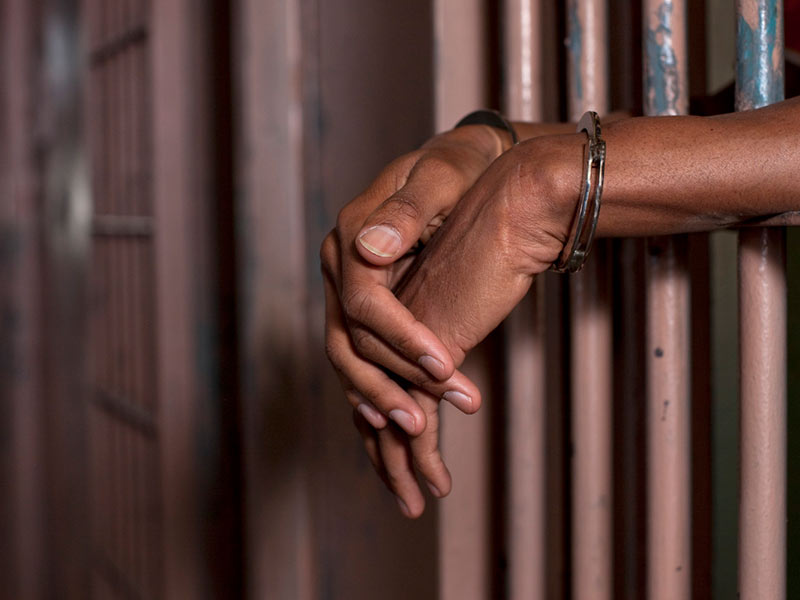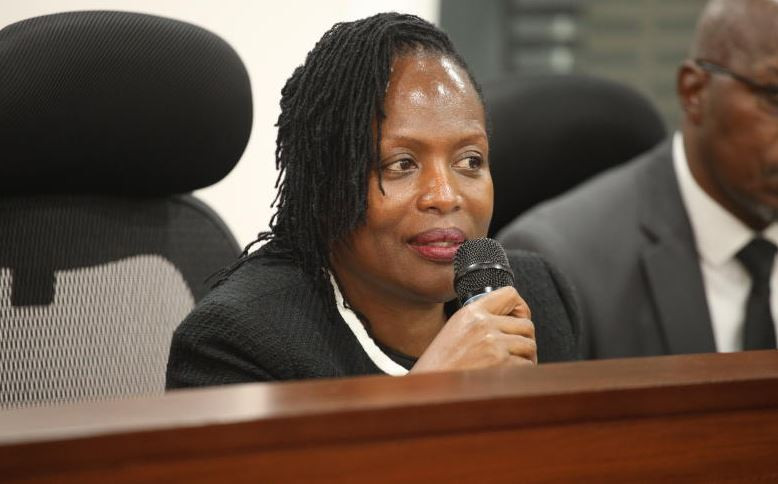
Kenya’s criminal justice system favours the rich and is skewed to condemn the poor, a State report has revealed.
A study on death-row convicts found that poor and uneducated Kenyans are languishing in prison for either robbery with violence or murder. The report was filed before the Supreme Court on October 3 this year.
The shocking findings are contained in five volumes of a survey exclusively seen by The Standard and conducted by the State, stemming from a landmark verdict by the apex court outlawing mandatory death sentences.
Former Attorney General Githu Muigai, in line with orders of the Supreme Court of Kenya delivered on December 14, 2017, in Francis Karioko Muruatetu and Wilson Thirimbi Mwangi vs Republic and six others, appointed the Task Force on Review of the Mandatory Death Sentence under Section 204 of the Penal Code.
Propose laws
The task force was required to, among other things, prepare a detailed professional review of the death penalty in the context of the judgement and order, set up a legal framework to deal with re-sentencing of capital offenders, formulate parameters of what ought to constitute life imprisonment, review the legislative framework on the death penalty in Kenya with a view to formulating amendments, and propose laws to give effect to the judgement.
That task force has now reported that Kenya’s criminal justice system is defective, leading to a disproportionate number of poor or vulnerable people being handed the death penalty.
After interrogating the circumstances under which men and women who are on death row were arrested, it emerged that many of them are paying for a sin that they never committed.
The task force draws its membership from the Judiciary, Office of Director of Public Prosecutions (ODPP), National Crime Research Centre (NCRC), the Power of Mercy Advisory Committee (POMAC) and Kenya Law Reform Commission (KLRC).
It also involves Parliament, Kenya National Commission on Human Rights (KNCHR), the Ministry of Interior, and the Office of the Attorney General and Department of Justice.
The task force, chaired by the Secretary of Justice and Constitutional Affairs Maryann Njau, also found that Kenyans are willing to accept those in jail for either murder or robbery with violence, and believe that they, too, can reform and become responsible men and women in society.
The Supreme Court found that the death penalty is still legal in the country. It, however, gave judges and magistrates the discretion to sentence an offender based on, among other things, whether they are remorseful for the offence, a probation report detailing if the society will accept the offender, and the aggravating factors of the offence committed.
The task force, in its report, wants the death penalty to be scrapped from Kenya’s law books, based on opinions, interviews with death row convicts and the factual reality that they encountered in prisons countrywide.
“Based on these findings, the task force recommends and urges Parliament to take the bold but rational next step of leading Kenya into a more just and humane future by abolishing the death penalty entirely,” the report filed before the highest court in the land reads in part.
Stay informed. Subscribe to our newsletter
In the 47 counties indicated, out of 4,703 people interviewed, 57 per cent do not want the death sentence, while 43 per cent supported its retention.
On the flip side, responses from 256 public officials working within the criminal justice system revealed that a majority, at 54 per cent, supported the retention of the death sentence, with 46 per cent against it.
Unanimous voice
The task force traversed the country, seeking views from Kenyans on whether to scrap the sentence or not. They also visited the 38 prisons that house death-row inmates.
It emerged that there was a unanimous voice that keeping convicts in prisons while a death sentence hangs over them amounts to torture and inhumane treatment.
Those condemned to die do not work. They wake up each morning and then retreat to their cells while counting down the hours to their natural death as no executions have been carried out in Kenya since 1987,when Hezekiah Ochuka and Pancras Oteyo Okumu were hang for treason.
It also comes at a cost, as the country spends Sh4.6 billion each year to feed, clothe and treat death-row convicts. Each convict consumes Sh240 each day. This means that every offender costs taxpayers Sh87,600 a year.
There are 4,819 condemned convicts. The taxpayer pays Sh422 million each year for their upkeep. Given that there are an estimated 7,000 offenders serving commuted life sentences, even if they were released on parole, Kenya would save Sh613 million per year.
“By placing rehabilitated offenders in the community through parole, the correctional system and the taxpayer are relieved of a significant burden. These savings can be redirected to supporting released offenders to become productive members of society,” the task force noted.
“There is growing consensus that extended time on death row, if not the death penalty itself, constitutes inhumane punishment in violation of international law, regional law and most modern constitutions, including those similar to Kenya’s.”
The report adds that the death sentence is not a deterrence to crime.
Capital punishment
Kenya practised capital punishment since independence, a trait it borrowed from its colonial master, Britain. Punishment by death in pre-colonial Kenya was uncommon.
Hanging as a punishment was started in the country in 1893 in the belief that those who were sent to the gallows were too dangerous to co-exist with fellow humans.
The penal code, as created by the British, required a mandatory death penalty for murder, treason and armed robbery. Kenya borrowed the same, but extended that to include gang robbery and female genital mutilation that results in death.
The task force also conducted public hearings where a majority of people were against the retention of the death sentence. Those opposed to the penalty explained that everyone is entitled to a second chance.
Members of the public and officials in favour of the death sentence were further probed on where they preferred it to apply in each of the six capital offences.
From the lot, 80 per cent of the public was in support of imposing the death penalty on those charged with treason, but 20 per cent were against it. On the other hand, 70 per cent of public officials agreed that those found guilty of treason should hang.
 The Standard Group Plc is a
multi-media organization with investments in media platforms spanning newspaper
print operations, television, radio broadcasting, digital and online services. The
Standard Group is recognized as a leading multi-media house in Kenya with a key
influence in matters of national and international interest.
The Standard Group Plc is a
multi-media organization with investments in media platforms spanning newspaper
print operations, television, radio broadcasting, digital and online services. The
Standard Group is recognized as a leading multi-media house in Kenya with a key
influence in matters of national and international interest.
 The Standard Group Plc is a
multi-media organization with investments in media platforms spanning newspaper
print operations, television, radio broadcasting, digital and online services. The
Standard Group is recognized as a leading multi-media house in Kenya with a key
influence in matters of national and international interest.
The Standard Group Plc is a
multi-media organization with investments in media platforms spanning newspaper
print operations, television, radio broadcasting, digital and online services. The
Standard Group is recognized as a leading multi-media house in Kenya with a key
influence in matters of national and international interest.






